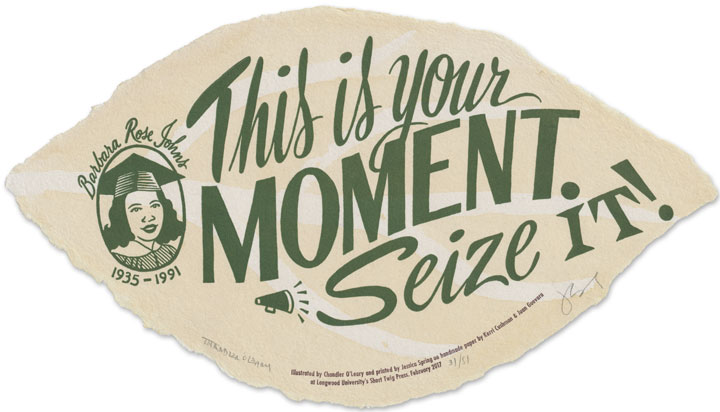An absolute and constant motivation for us in creating the Dead Feminists series has been the opportunity to find and share the words and stories of women that people should know, but often don’t. While this might be considered teaching, a February trip to Farmville, Virginia, gave us the chance to be the students. We were invited by Longwood University Professor Kerri Cushman to learn more about the struggle against school segregation that began April 23, 1951 in Prince Edward County—long before the Montgomery bus boycott. On that day, 16-year-old Barbara Rose Johns led her classmates to strike against conditions at their all-black high school. Her persistence convinced NAACP lawyers to take up the students’ cause, filing a suit which would become one of five cases included in Brown v Board of Education.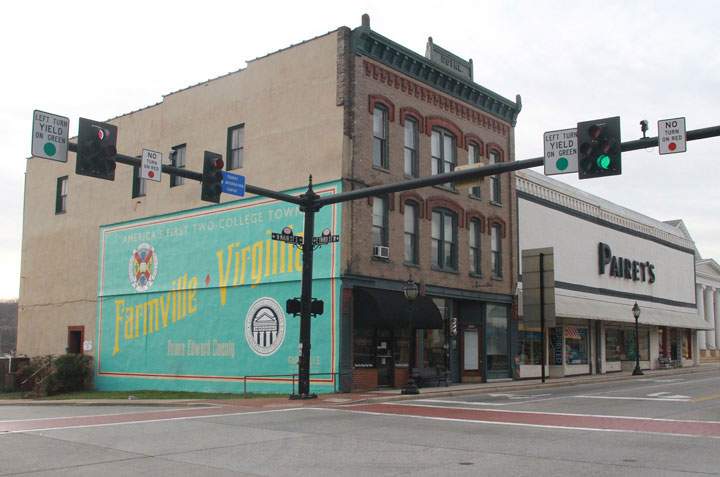
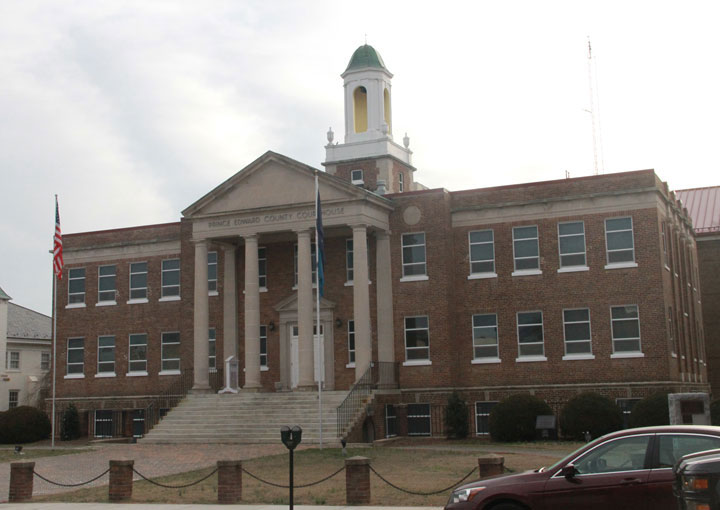
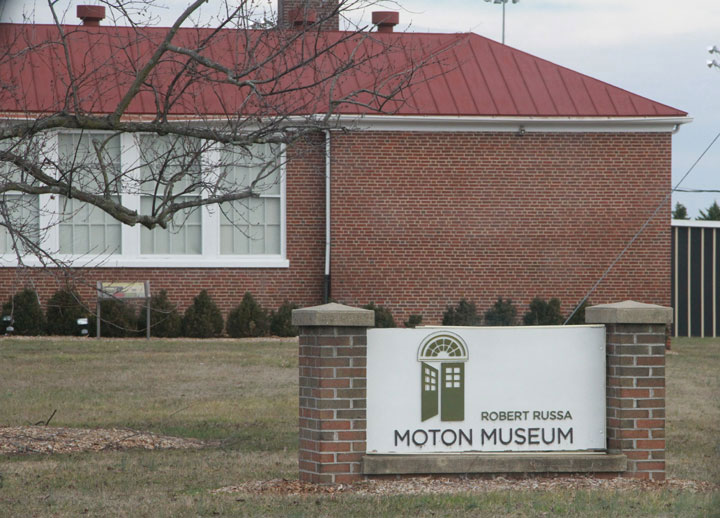
Barbara’s former high school is now the home of the Moton Museum, a National Historic Landmark. A reconstruction of temporary tar paper shacks built to house overcrowded students, and first-person accounts help visitors understand the extreme conditions that motivated students to strike. According to Barbara’s sister, Joan: “In winter the school was very cold. And a lot of times we had to put on our jackets. Now, the students that sat closest to the wood stove were very warm and the ones who sat farthest away were very cold. And I remember being cold a lot of times and sitting in the classroom with my jacket on. When it rained, we would get water through the ceiling. So there were lots of pails sitting around the classroom. And sometimes we had to raise our umbrellas to keep the water off our heads. It was a very difficult setting for trying to learn.”
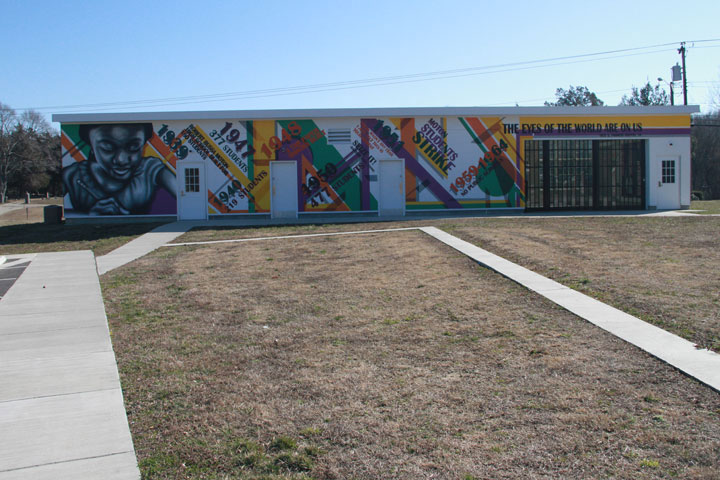
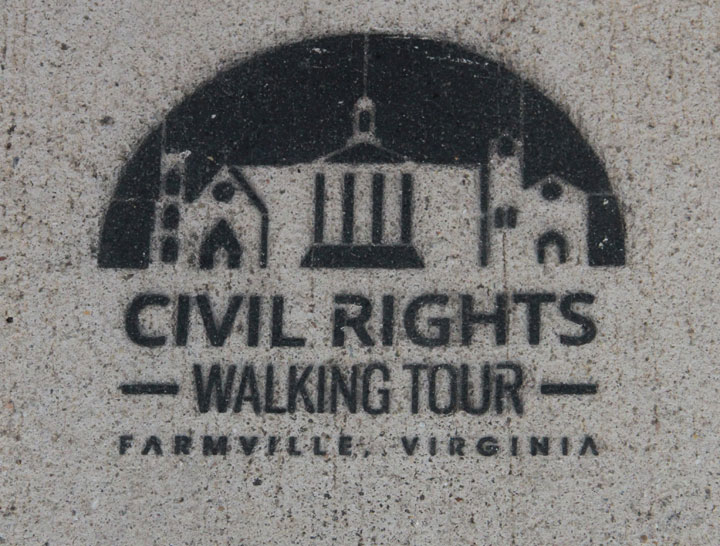
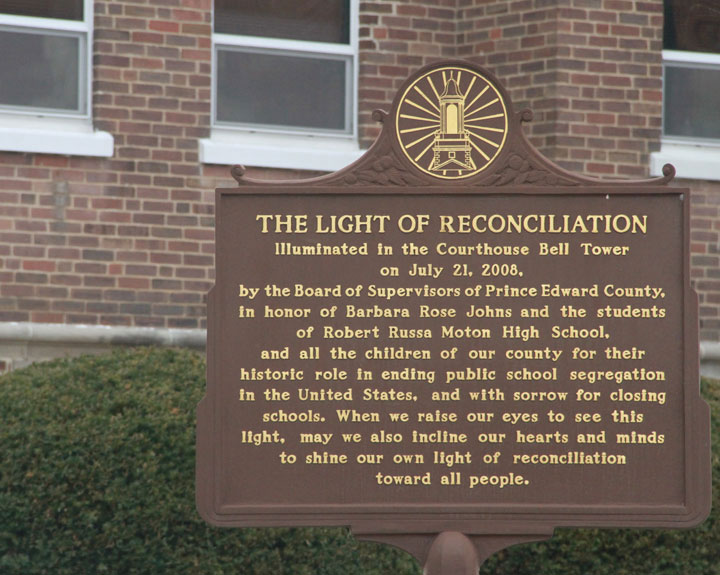 As a result of the Brown decision, in 1959 the Board of Supervisors refused to appropriate any funds at all for the County School Board. From 1959 to 1964 Prince Edward County closed their public schools to avoid integration. While many white children attended segregated private schools, black children had to go elsewhere, attend makeshift schools, or forego years of formal education. In 1964, The Supreme Court in Griffin v. Prince Edward ordered schools to reopen, declaring “the time for mere ‘deliberate speed’ has run out.”
As a result of the Brown decision, in 1959 the Board of Supervisors refused to appropriate any funds at all for the County School Board. From 1959 to 1964 Prince Edward County closed their public schools to avoid integration. While many white children attended segregated private schools, black children had to go elsewhere, attend makeshift schools, or forego years of formal education. In 1964, The Supreme Court in Griffin v. Prince Edward ordered schools to reopen, declaring “the time for mere ‘deliberate speed’ has run out.”
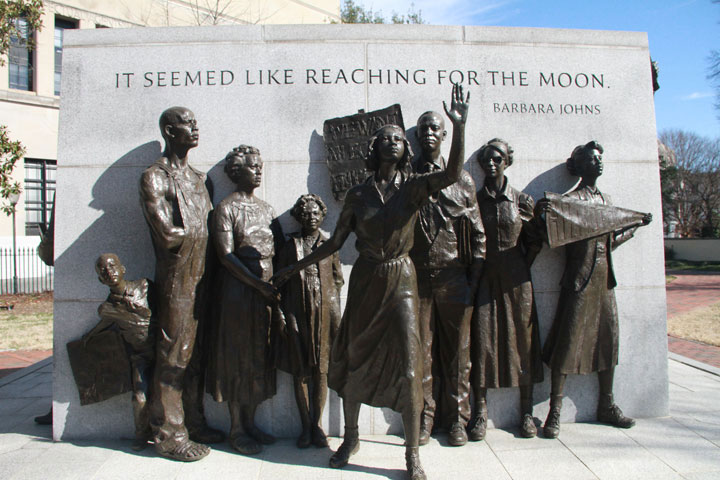 The Virginia Civil Rights Memorial in Richmond honors Barbara and the striking students.
The Virginia Civil Rights Memorial in Richmond honors Barbara and the striking students.
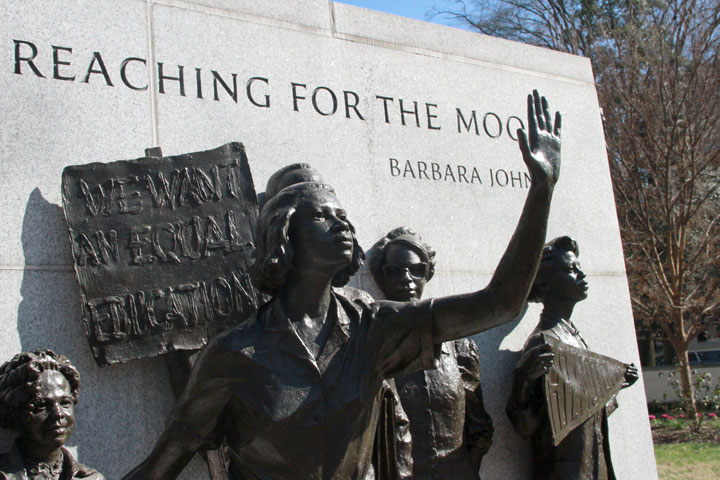
As we considered how best to honor Barbara’s story in our collaboration at Longwood, we took inspiration from what motivated her to take courageous action: “It was time that Negroes were treated equally with whites, time that they had a decent school, time for the students themselves to do something about it. There wasn’t any fear. I just thought — this is your moment. Seize it!”
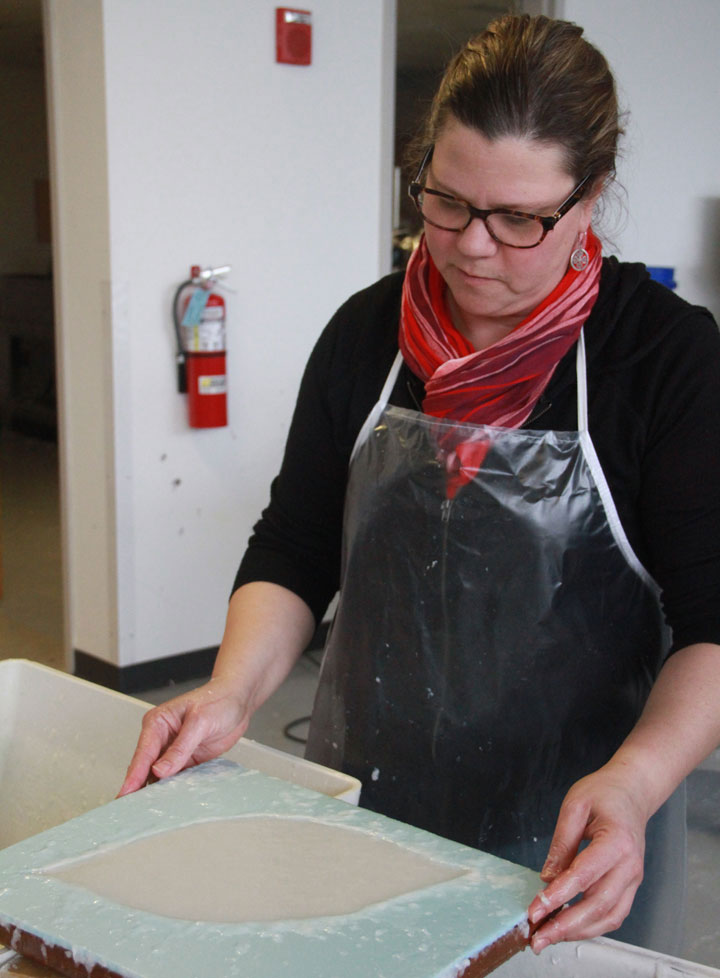
We knew this project would be a little different from our other Dead Feminists broadsides–it would have to happen in a short visit, and we had the special opportunity to create a bigger collaboration and utilize handmade paper. Kerri and her students embraced the idea of making shaped paper that would reference the region’s history as a tobacco producer as well as suggest the shape and look of high school pennants. Kerri created custom paper moulds, and Chandler’s illustration worked to fill the space in both form and content.
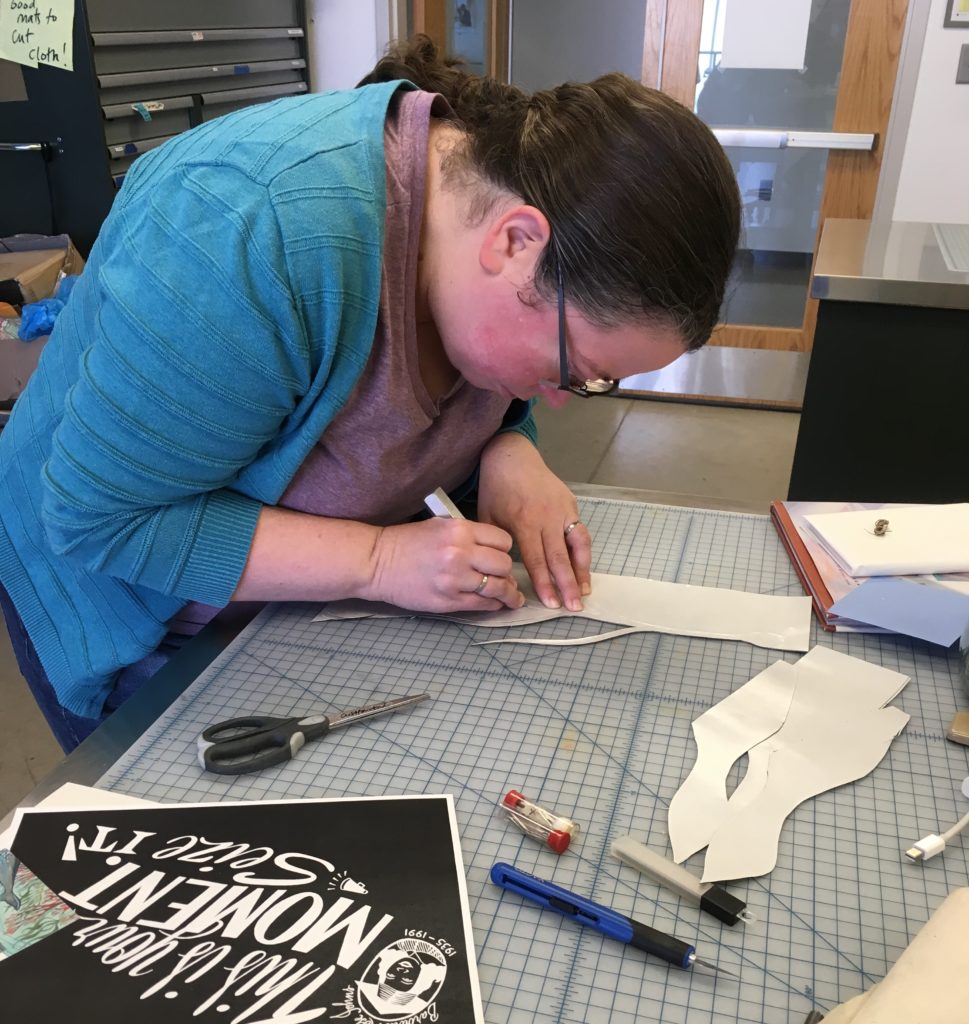
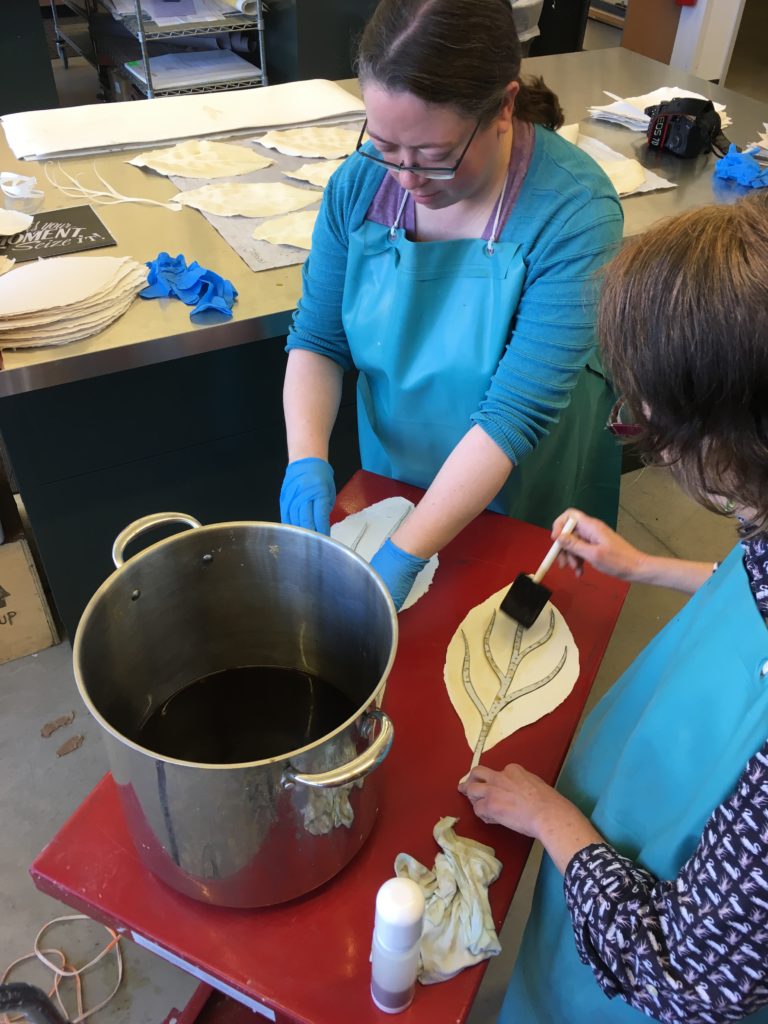
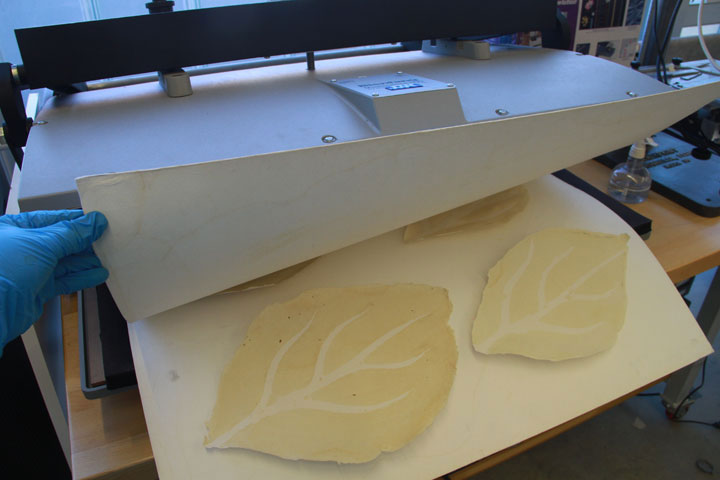
We also created stencils (magnetic sheets cut to resemble leaf veins) and used actual cooked tobacco “juice” to stain each sheet of handmade paper. The five leaf veins represent the five school integration cases.
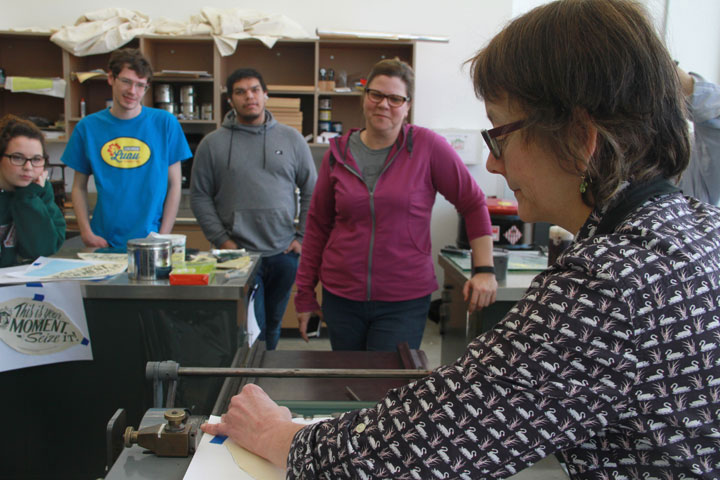
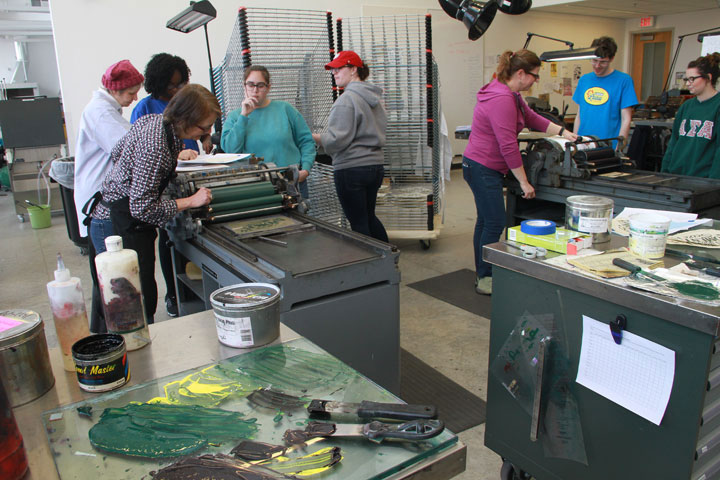
In addition to the gorgeous papermaking facilities at Longwood, there are plenty of printing presses. Kerri and her students created plates from Chandler’s illustration on site, and we handset the curved colophon. With ink mixed, we had two presses running and plenty of community members and students attending our working demonstration.
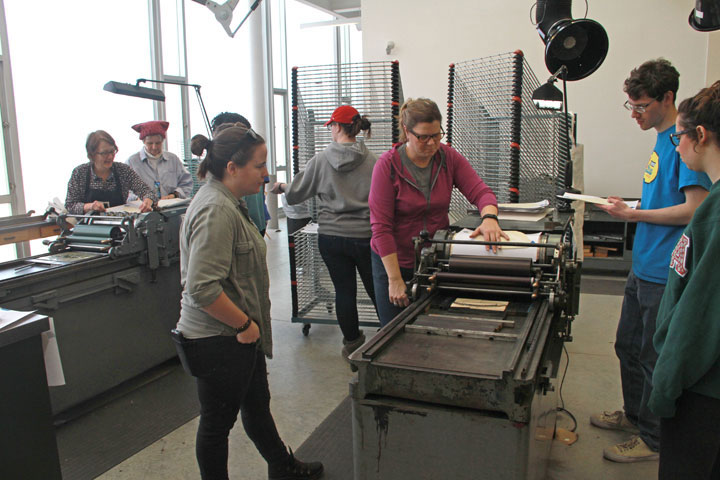
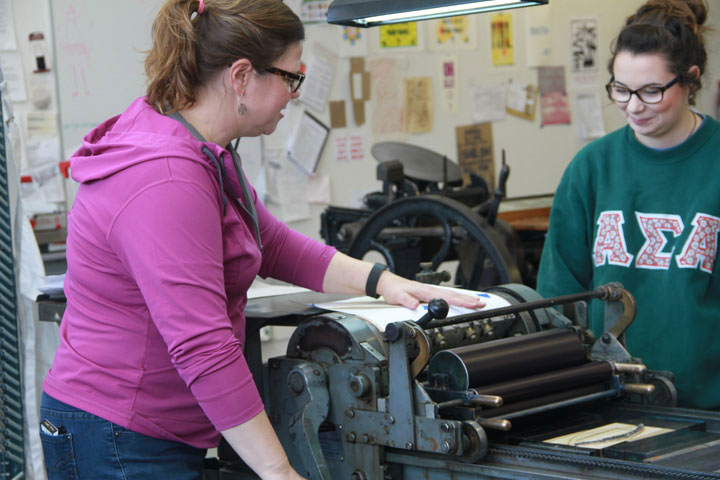
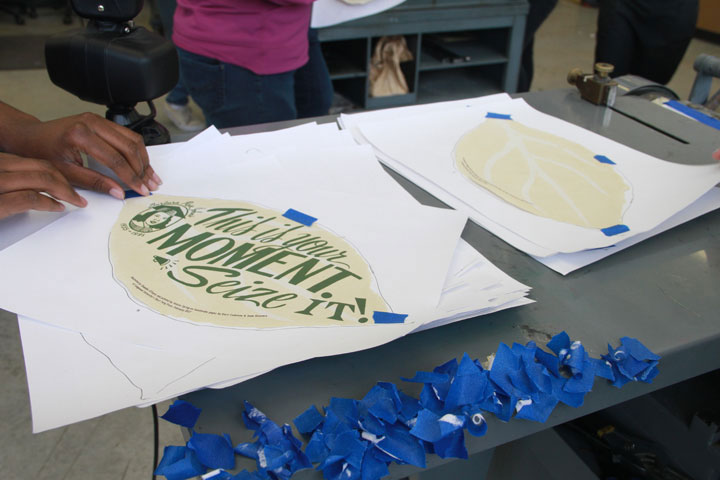
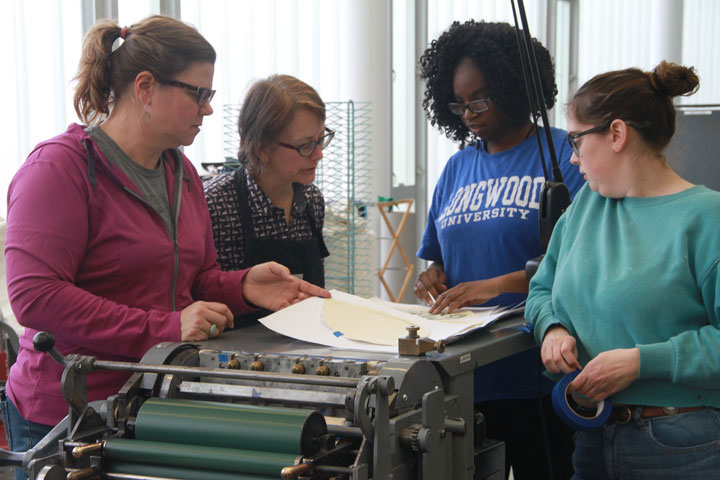 The shaped leaf was best handled through the presses by carefully mounting with painter’s tape on a carrier sheet.
The shaped leaf was best handled through the presses by carefully mounting with painter’s tape on a carrier sheet.
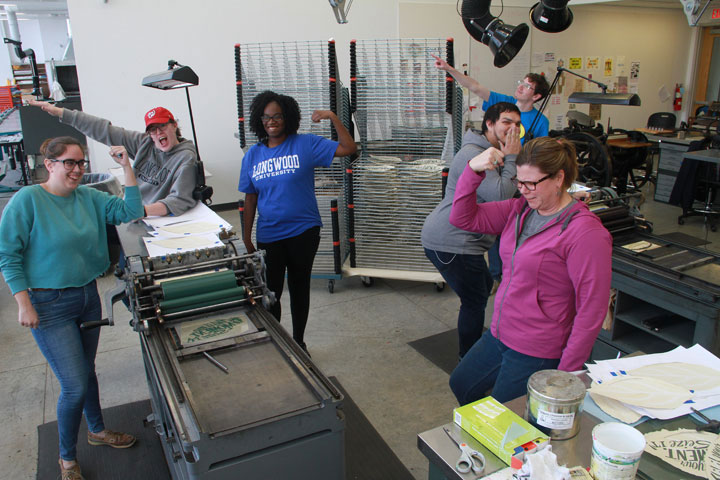
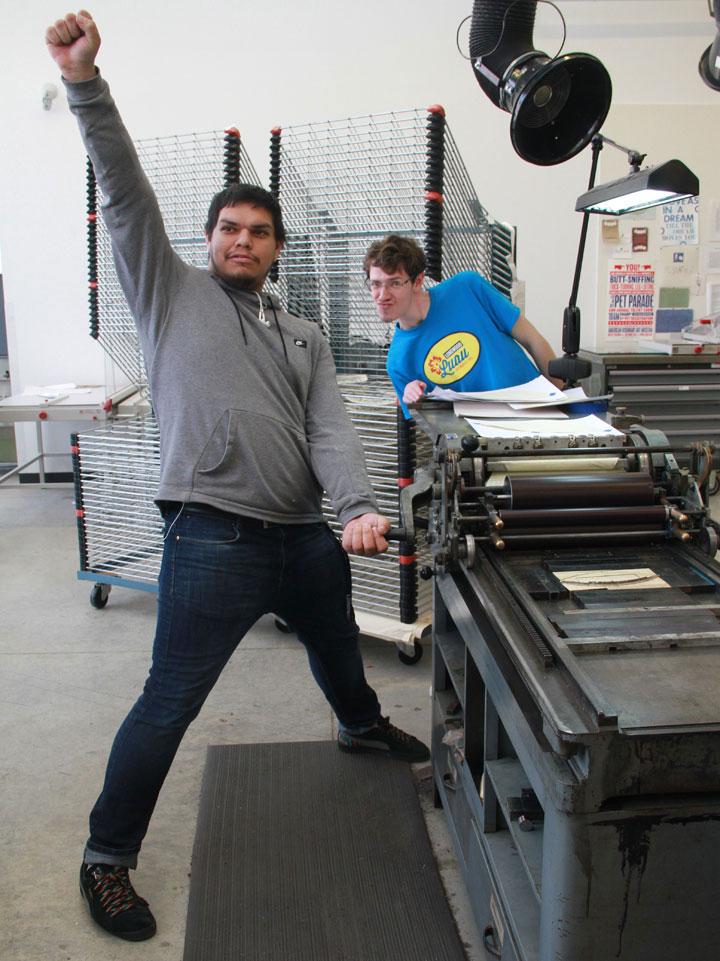
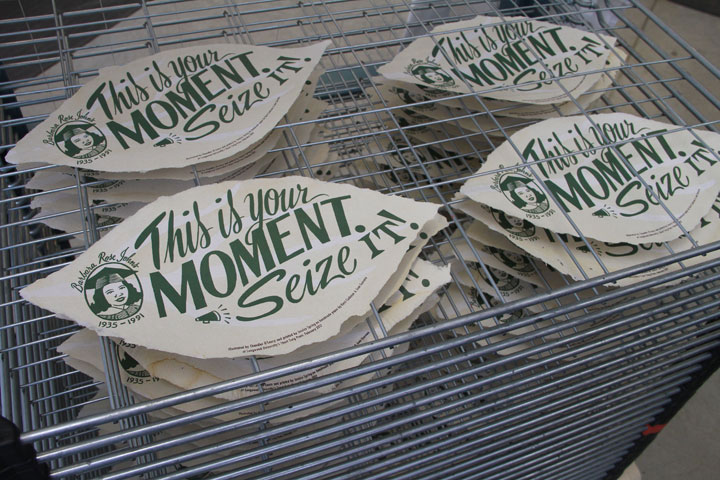
We completed the edition with a lot of help from Kerri and her amazing students, including talented and enthusiastic studio assistant Juan Guevara. Working together, we made it happen!
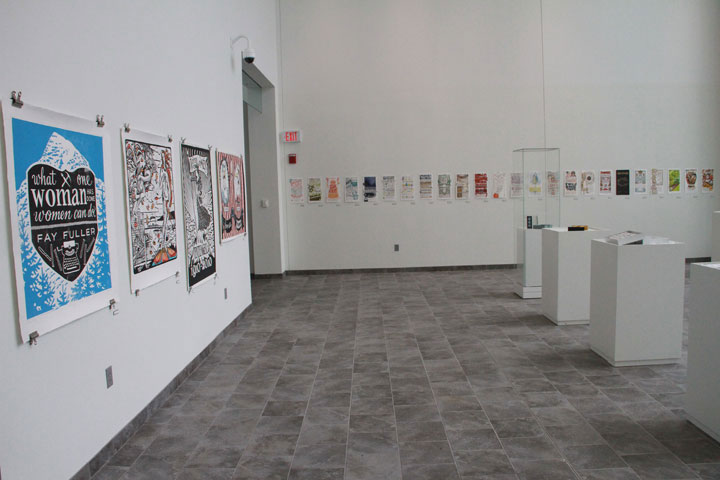
We also shared our work in Longwood’s gallery, including some very big steamroller prints.
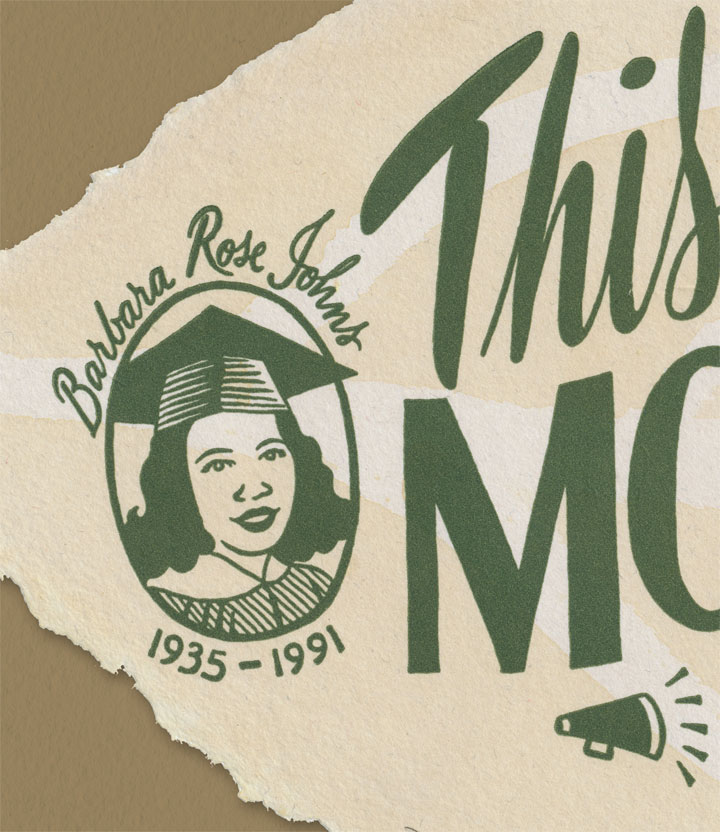 We completely enjoyed the opportunity to learn more about Farmville, papermaking, the Moton Museum, and of course, Barbara Rose Johns, as we share her story. We hope “A Leaf From Her Book” honors her bravery as a young woman, but also her continued commitment to education, as shown through her work as a librarian until the end of her life in 1991.
We completely enjoyed the opportunity to learn more about Farmville, papermaking, the Moton Museum, and of course, Barbara Rose Johns, as we share her story. We hope “A Leaf From Her Book” honors her bravery as a young woman, but also her continued commitment to education, as shown through her work as a librarian until the end of her life in 1991.
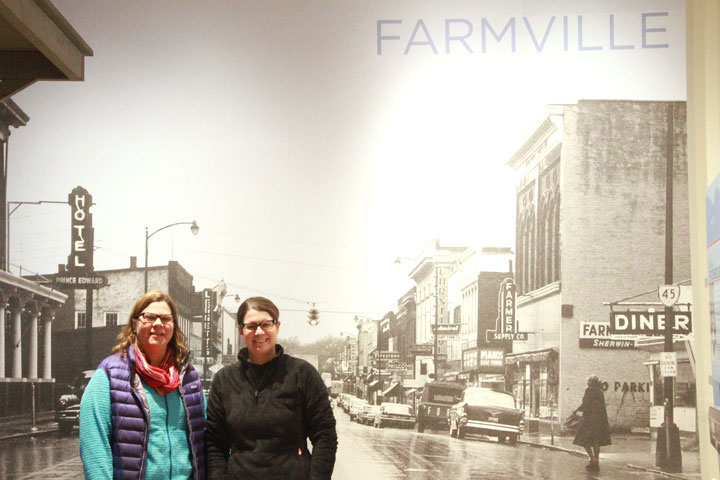 Very special thanks to Longwood Professors Kerri Cushman and Larissa Fergeson–collaborators, teachers and hosts–for seizing the moment with us.
Very special thanks to Longwood Professors Kerri Cushman and Larissa Fergeson–collaborators, teachers and hosts–for seizing the moment with us.
